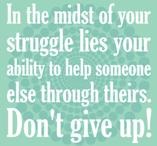
Love is important and it takes up lot of our energy. We want to love and be loved in return. I think of love as a battery. When we have love, we feel powerful, energetic, optimistic, creative and motivated. It drives us forward and it is addictive. Yes, addictive. Once you feel love, you are not the same person anymore.
I realized all this about love when Eden, my eldest, was born over 25 years ago. With her, new feelings were born inside of me and there was nothing that could take those feelings away.
Before Eden was born, my first nephew, Adam was the first kid I ever loved. And I loved him so much (and still do) that I was afraid I wouldn’t be able to love my own child as much as I loved him.
When Eden was born, I was glad to discover that there is no limit to love. I loved Eden so much and my love for Adam did not change one single bit. But at that point, I realized that we bring kids into the world to learn to love ourselves. Our own kids teach us so much about ourselves and we should appreciate that.
Read Self Love Affirmations »














